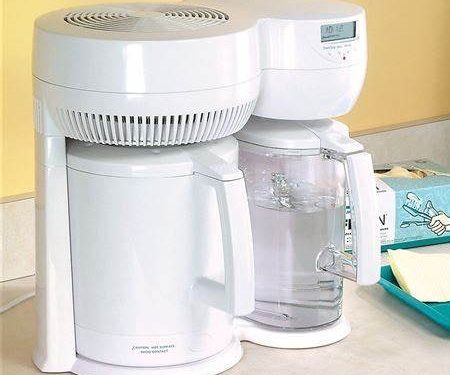Introduction
Clean, safe water is essential for health, but contaminants are often present in tap water. To combat this, many households turn to water purification methods like filtration, reverse osmosis, and distillation. In this article, we’ll explore how water distillers work and why they’re a popular choice for those seeking the highest purity.
What is a Water Distiller?
A water distiller is a device designed to purify water by mimicking nature’s hydrologic cycle—evaporation, condensation, and precipitation. It removes impurities such as bacteria, heavy metals, and chemicals, leaving behind only pure, distilled water. Unlike filters or reverse osmosis systems, a distiller uses heat to turn water into vapor, separating it from contaminants. A great example is the Coz water distiller machine, which is popular for its efficiency and ease of use. It’s ideal for home use, producing clean, high-quality water with minimal effort.
Water Distiller vs. Water Chiller
While both water distillers and water chillers improve water quality, they serve different purposes:
- Water Distiller: Purifies water by removing contaminants like bacteria, heavy metals, and chemicals through the process of evaporation and condensation. It’s ideal for health-conscious individuals who prioritize purity.
- Water Chiller: Used in industrial applications to cool equipment and processes by removing heat from liquids, not to purify water. Water quality depends on the source or any filtration systems used before the chiller.
How Does Water Distillation Work?
The distillation process is straightforward:
- Heating: Water is heated to the boiling point, turning it into steam.
- Evaporation: As the water evaporates, contaminants like salts, minerals, and other impurities are left behind.
- Condensation: The steam is then captured in a cooling system, where it condenses back into liquid water.
- Collection: The purified water is collected in a separate container, leaving contaminants behind.
This simple yet effective process ensures that the water is free from a wide range of harmful substances, including bacteria, heavy metals, and volatile chemicals.
Benefits of Using a Water Distiller
Water distillers offer numerous advantages:
- High Purity: Removes up to 99.9% of contaminants, including heavy metals, bacteria, and chemicals like chlorine.
- Environmentally Friendly: Unlike bottled water, distilled water eliminates plastic waste and reduces your carbon footprint.
- Health Benefits: Reduces exposure to harmful substances commonly found in tap water, making it a great choice for health-conscious individuals.
Drawbacks of Water Distillers
Despite their benefits, water distillers do have some drawbacks:
- Time-Consuming: Producing distilled water is a slow process, with most units taking several hours to create one gallon of water.
- Energy Consumption: The distillation process requires electricity, which can add to energy costs.
- Mineral Loss: While contaminants are removed, beneficial minerals such as calcium and magnesium are also lost during distillation.
Types of Water Distillers
There are several types of water distillers available:
- Countertop Distillers: Ideal for home use, these are compact and easy to use, making them a popular choice for daily water needs.
- Industrial Distillers: Larger systems designed for businesses or medical settings where high volumes of distilled water are required.
When purchasing a distiller, consider factors like capacity, speed, and energy efficiency to find the right fit for your household.
Applications of Distilled Water
Distilled water has a wide range of applications beyond drinking:
- Cooking: Using distilled water for cooking enhances the taste and prevents unwanted flavors from contaminants.
- Appliances: It can prolong the life of appliances like steam irons, humidifiers, and coffee makers by preventing scale buildup.
- Medical and Laboratory Use: Distilled water is often used in medical facilities and laboratories due to its purity.
Conclusion
Water distillers are an excellent option for those who prioritize water purity and environmental sustainability. While they require time and energy, the health benefits and quality of distilled water make it worth the investment. When choosing a distiller, consider your household’s needs to find a unit that suits your lifestyle.





![7 Best POS Software in the UK [2026 Edition]](https://todaynews.co.uk/wp-content/uploads/2026/02/7-Best-POS-Software-in-the-UK-2026-Edition-360x180.png)





































































